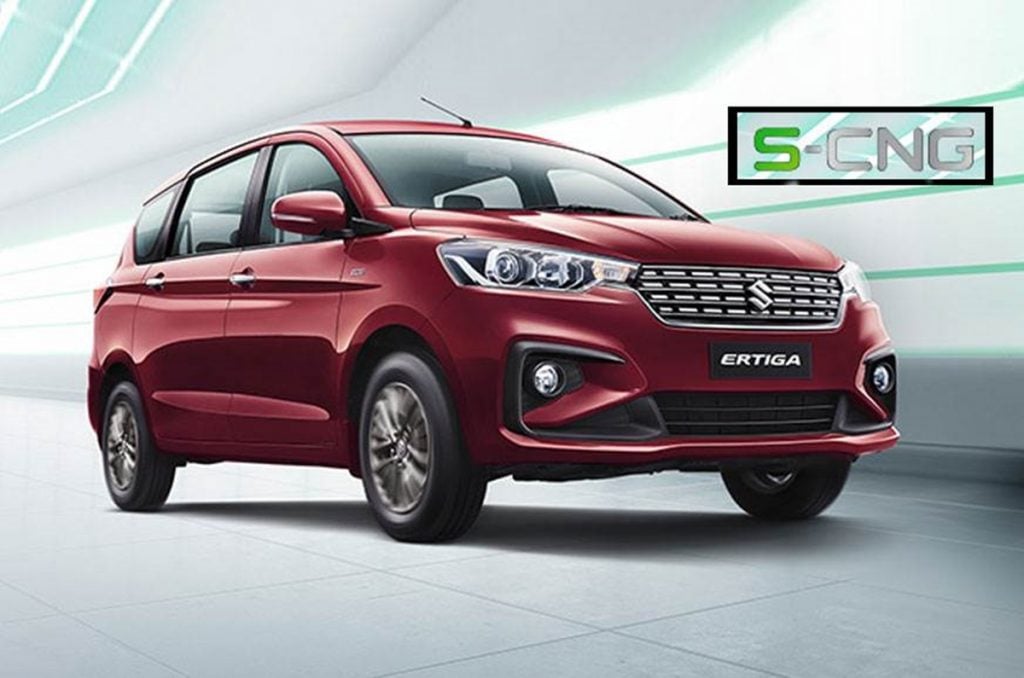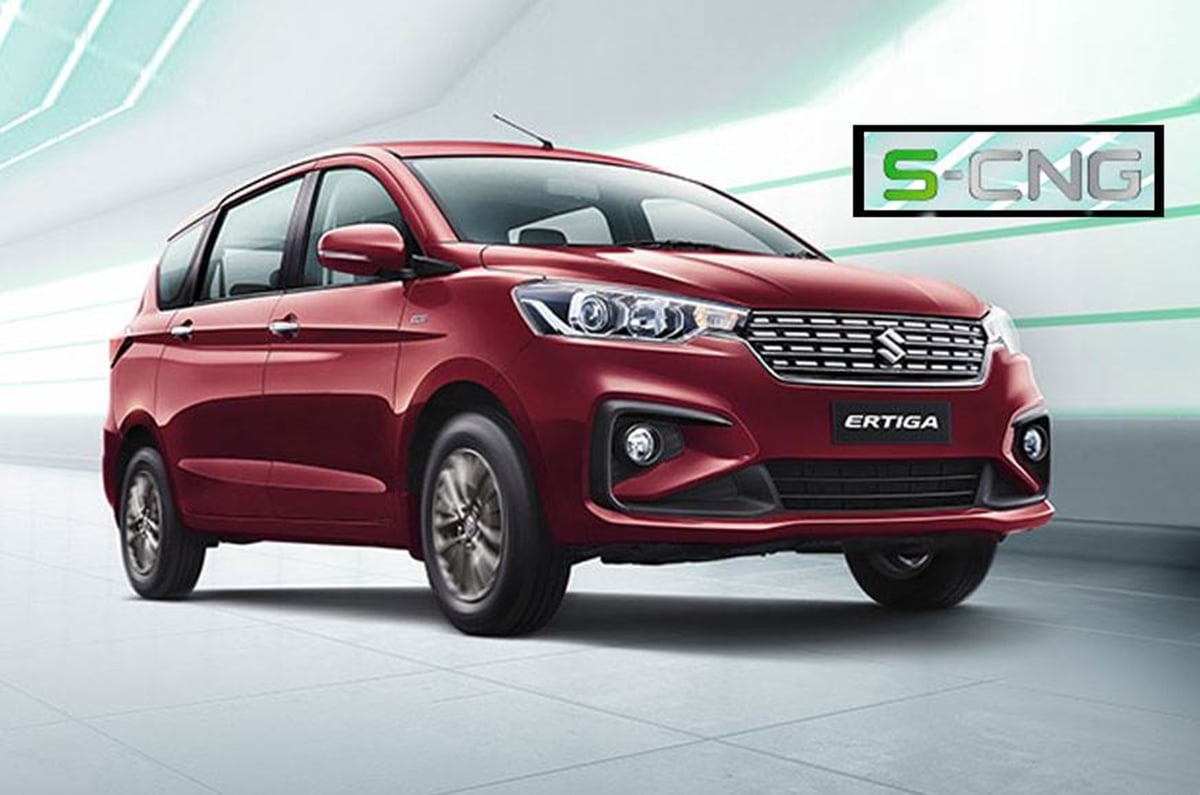The BS6 Maruti Suzuki Ertiga CNG is powered by the K15B petrol-CNG engine that produces 92bhp and 122 Nm of torque and is available on the mid-spec VXi variant.
Maruti Suzuki has launched the BS6 complaint Ertiga in India for a price of Rs 8.95 lakh (ex-showroom, Delhi). The CNG variant of the Ertiga was launched in July last year and now, it has been updated to the BS6 norms. With the BS6 update, the Maruti Suzuki Ertiga CNG sees a hike in price by Rs. 7,000.

Other than the BS6 compliance, the Maruti Suzuki Ertiga CNG otherwise remains completely unchanged. It is still only available in a single, mid-spec VXi variant, and comes with the same list of features and safety kit. With the BS6 update, Maruti Suzuki has however not compromised on the output from the engine. The K15B petrol unit continues to make 92hp and 122Nm of torque when run on CNG.
The fuel efficiency has however taken a hit with the BS6 update. The ARAI mileage has reduced marginally from 26.2km/kg in BS4 form to 26.08km/kg. The Japanese company also announced today that over 5.28 lakh units of the Ertiga have been sold since the MPV had first launched about nine years ago.
Also Read : What Has Changed With Hyundai Grand i10 Nios Turbo Petrol?
Speaking of Maruti Suzuki CNG cars, the brand also showcased the BS6 S-Presso CNG at the 2020 Auto Expo, In fact, the S-Presso S-CNG is the first Maruti to receive a BS6-compliant, CNG version of the 1.0-litre K-series engine. The model is expected to launch in the coming weeks. Maruti also has the Celerio, Celerio X, Alto K10 and Wagon R 1.0 which are powered by the 1.0-litre petrol-CNG powertrain but they are still BS4 spec.
Also Read : Volkswagen T-Roc To Be Launched in India in Mid-April 2020
The S-Presso S-CNG’s 1.0-litre, three-cylinder, naturally aspirated engine puts out 67hp and 90Nm of torque on petrol, and a lower 58hp and 78Nm when run on CNG. A 5-speed manual gearbox is standard with the CNG S-presso. Maruti Suzuki will launch the S-Presso S-CNG in four variants – LXi, LXi Option, VXi and VXi Option – with pricing expected to be about Rs 60,000 more than the corresponding petrol variants.


